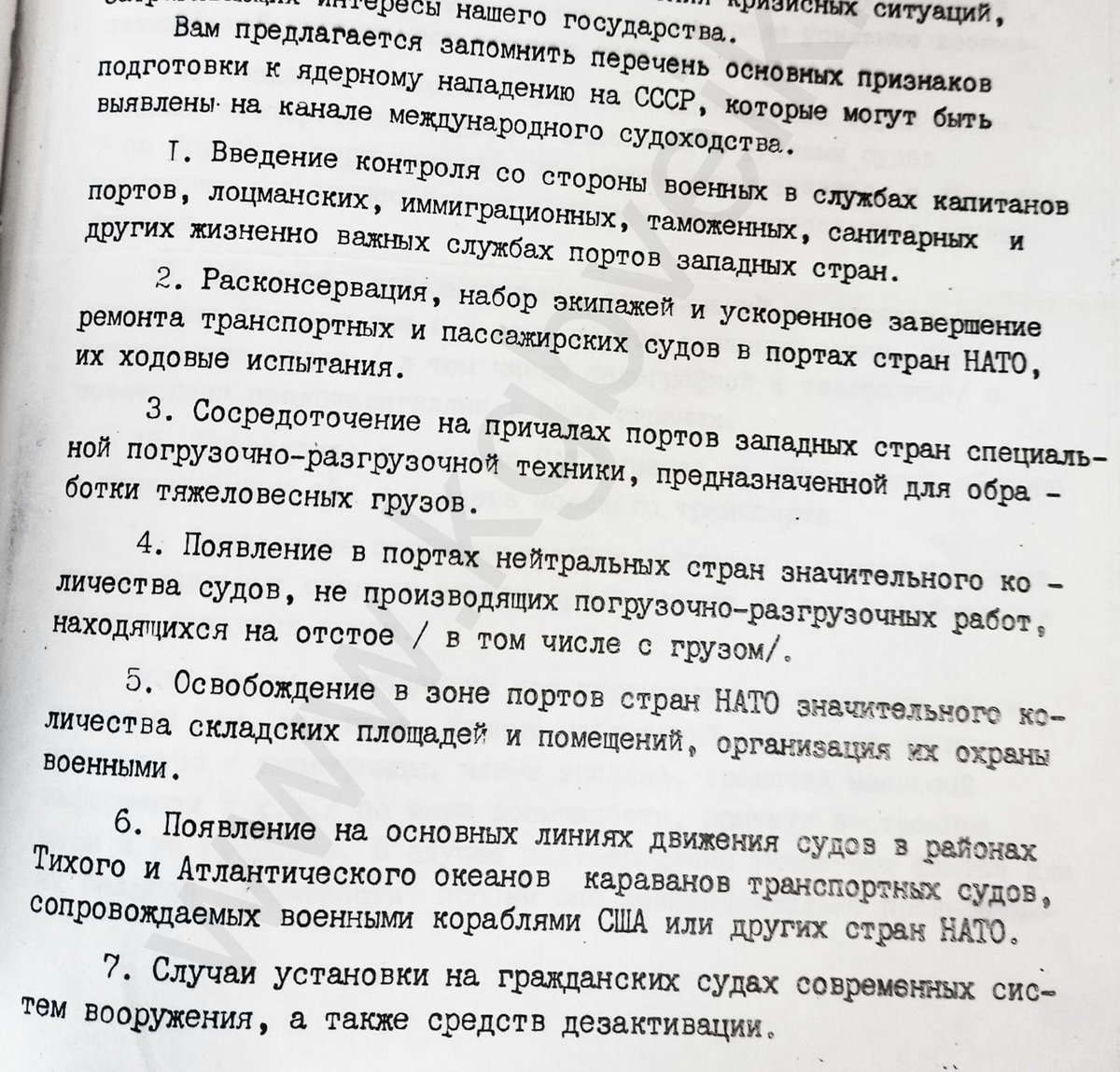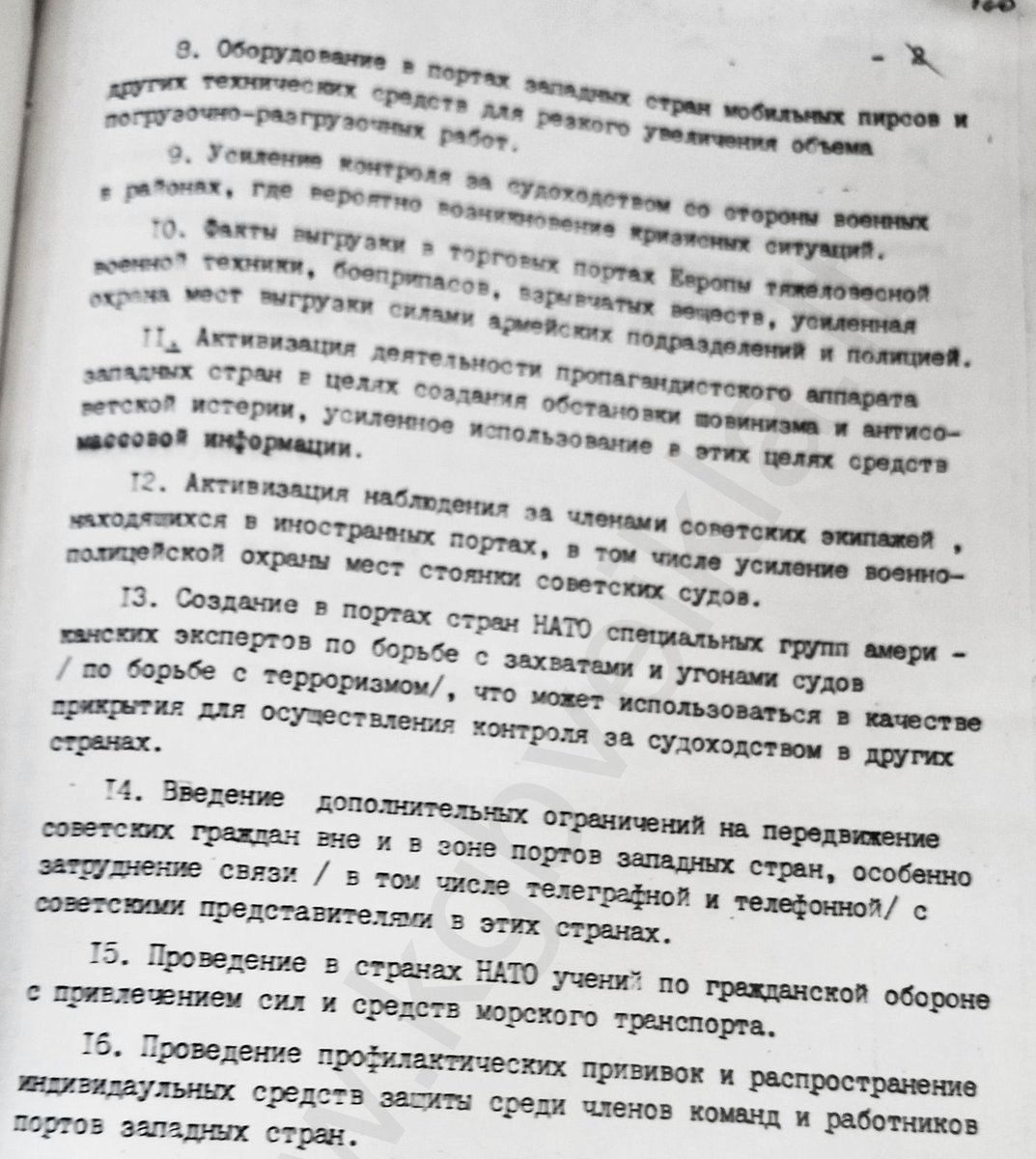NEW 🧵: When #KGB closed down its training school in Vilnius in 1960, many top secret publications from the school's library were destroyed.
Based on my archival research at the Hoover Institution, I am now able to resurrect the titles of the destroyed publications. ⬇️
Based on my archival research at the Hoover Institution, I am now able to resurrect the titles of the destroyed publications. ⬇️

Note: I translated the titles from Russian into English. For most, this is their first public mention.
1. Nikitinsky and Safonov. Collection of Documents on German Espionage in Tsarist Russia.
2. Nikitinsky. Collection of Documents on the History of Russian Counterintelligence.
1. Nikitinsky and Safonov. Collection of Documents on German Espionage in Tsarist Russia.
2. Nikitinsky. Collection of Documents on the History of Russian Counterintelligence.
3. Svatikov. The Foreign Agent Networks of the Department of Police.
4. The Diagram of the Anti-Soviet and Nationalist Political Parties Active in Lithuania until 1940.
5. Toropov. Methodology of Seminar and Practical Assignments for the Special Discipline No. 1.
4. The Diagram of the Anti-Soviet and Nationalist Political Parties Active in Lithuania until 1940.
5. Toropov. Methodology of Seminar and Practical Assignments for the Special Discipline No. 1.
6. Bokov. A Methodological Report on the topic "Methodology of Administrating the Written Papers of Students on the Assignments of Special Disciplines."
7. Nadiradze. Report on the topic "On Some Questions on the Methodology of Conducting Consultations."
7. Nadiradze. Report on the topic "On Some Questions on the Methodology of Conducting Consultations."
8. Safiullin. Report on the topic "Methodology of Administrating Practical Assignments on the Spoken Analysis of Operational Tasks."
9. Vorozheikin. Report on the topic "On the Extracurricular Activities with Students of Special Disciplines."
9. Vorozheikin. Report on the topic "On the Extracurricular Activities with Students of Special Disciplines."
10. Zakharov. Overview of the Case of American Agents-Parachuters Osmanov and Sarantsev.
11. Grishaev et al. Training Manual on the topic "Interrogation of Witnesses."
11. Grishaev et al. Training Manual on the topic "Interrogation of Witnesses."
12. Lisov. Lecture on the topic "Content and Structure of the Course on the Fundamental Principles of the Counterintelligence Activities of State Security."
13. Chistov. Lecture on the topic "Forms and Methods of Subversive Activities against the USSR by the Intelligence Agencies of Bourgeois States and Other Enemies of the Soviet State."
14. Myzin. Lecture on the topic "Forms and Methods of Subversive Activities against the USSR by the Intelligence Agencies of Bourgeois States and Other Enemies of the Soviet State."
15. Aleksandrov. Training Manual on the topic "Running Agents and Their Training."
16. Neboliubov. Lecture on the topic "Running Agents and Their Training."
17. Sorokin. Training Manual on the topic "Methods of External Surveillance."
16. Neboliubov. Lecture on the topic "Running Agents and Their Training."
17. Sorokin. Training Manual on the topic "Methods of External Surveillance."
18. Mikhailov. Lecture on the topic "Perlustration (PK)."
19. Smoliakov et al. Training Manual on the topic "Perlustration (PK)."
20. Sholokov. Overview on the topic "Methods of Contact with the Agents of State Security in the Rural Areas."
19. Smoliakov et al. Training Manual on the topic "Perlustration (PK)."
20. Sholokov. Overview on the topic "Methods of Contact with the Agents of State Security in the Rural Areas."
21. Kanishchev et al. Training Manual on the topic "Radio Counterintelligence Activities of State Security."
22. Tankaev. Lecture on the topic "Radio Counterintelligence Service."
23. Koval. Lecture on the topic "Operational Records."
22. Tankaev. Lecture on the topic "Radio Counterintelligence Service."
23. Koval. Lecture on the topic "Operational Records."
24. Gribanov. Transcript of Lecture on the topic "Agent-Based Combination and Its Significance in the Counterintelligence Activities of State Security."
Gen. Oleg Gribanov was the head of #KGB Second Chief Directorate (1956-1964). This is the 1st public mention of this lecture.
Gen. Oleg Gribanov was the head of #KGB Second Chief Directorate (1956-1964). This is the 1st public mention of this lecture.
25. Training Manual on the topic "Providing Agents for Operational Cultivation."
26. Vasilchenko. Lecture on the topic "Operational Documentation in the Process of Cultivation. Finding and Collecting the Evidence."
26. Vasilchenko. Lecture on the topic "Operational Documentation in the Process of Cultivation. Finding and Collecting the Evidence."
27. Vasilchenko. Example of the Operational Documentation of the Criminal Activities of the Suspects at the End of Cultivation.
28. Vasilchenko. Lecture on the topic "The End of Cultivation."
28. Vasilchenko. Lecture on the topic "The End of Cultivation."
29. Yermakov. Lecture on the topic "Secret Records Keeping and Operational Accounting in the Work of State Security."
30. Blokhin. Overview of the Operation SLAVES OF ZION.
31. Blokhin. Information Summary of the Overview of the Operation SLAVES OF ZION.
30. Blokhin. Overview of the Operation SLAVES OF ZION.
31. Blokhin. Information Summary of the Overview of the Operation SLAVES OF ZION.
32. Shestoboev. Collection of Examples for Spotting, External Surveillance, Perlustration, and Running Numbered Measures.
33. Safiullin. Collection of Examples on the topic "Agent-Based Combination and Cover Stories."
33. Safiullin. Collection of Examples on the topic "Agent-Based Combination and Cover Stories."
34. The Program for the Studies of Soviet Criminology.
35. Vasilchenko. Operational Assignment on the topic "Record Keeping for Checking and Studying a Candidate for Recruitment."
35. Vasilchenko. Operational Assignment on the topic "Record Keeping for Checking and Studying a Candidate for Recruitment."
36. Vasilchenko. Solution for Operational Assignment on the topic "Record Keeping for Checking and Studying a Candidate for Recruitment."
37. Safiullin. Collection of Examples on the topic "Recruiting Agents."
37. Safiullin. Collection of Examples on the topic "Recruiting Agents."
38. Neboliubov. Assignment on the topic "Writing the Report and the Plan for Agent Recruitment."
39. Neboliubov. Solution for Assignment on the topic "Writing the Report and the Plan for Agent Recruitment."
39. Neboliubov. Solution for Assignment on the topic "Writing the Report and the Plan for Agent Recruitment."
I will keep adding more titles until the list is complete.
• • •
Missing some Tweet in this thread? You can try to
force a refresh










